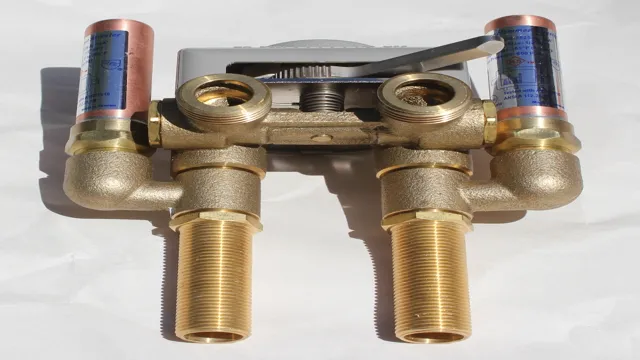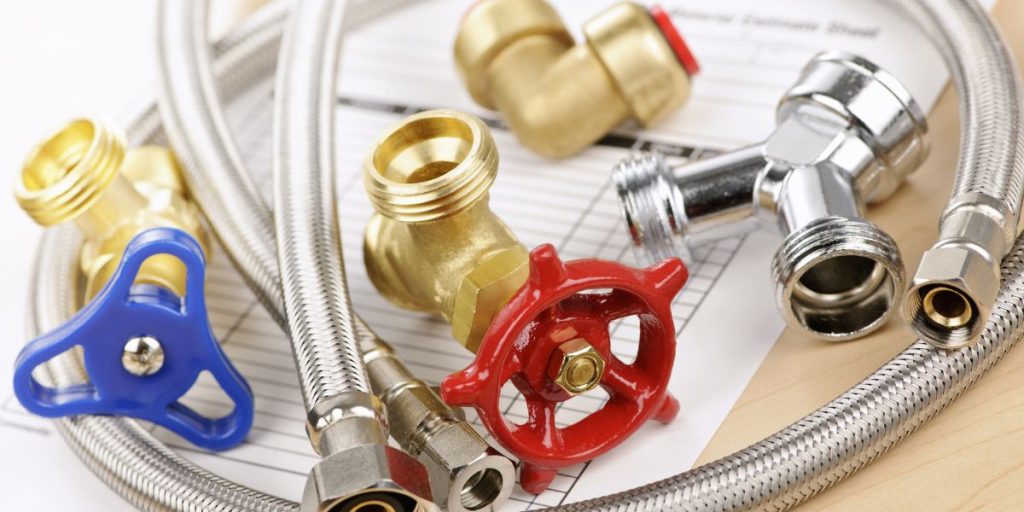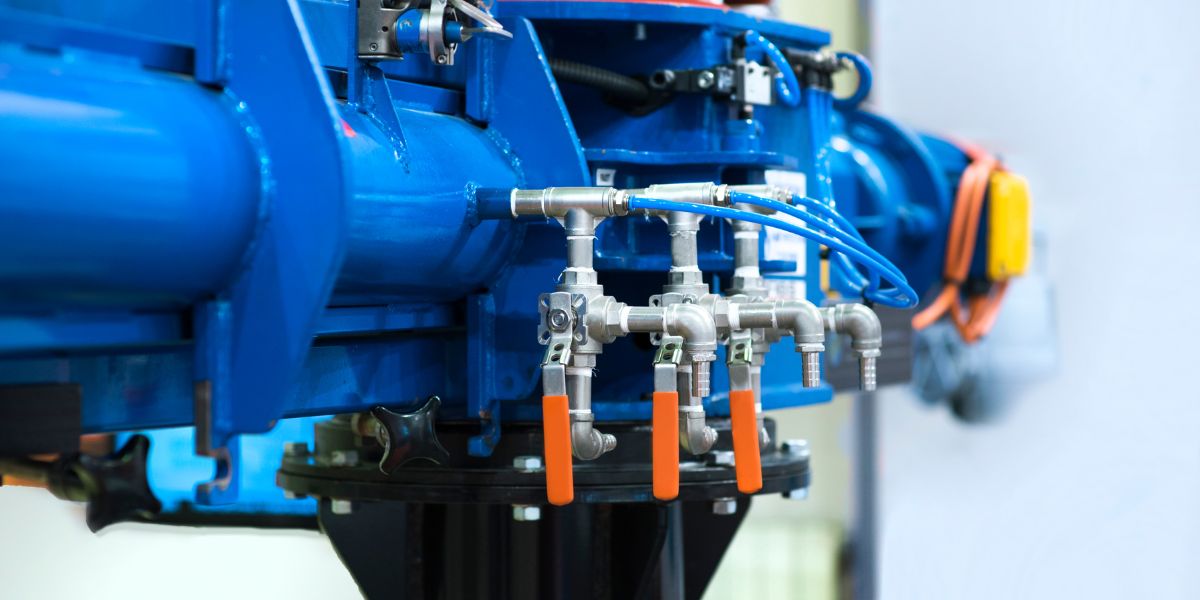In a world where efficiency and safety are paramount, the introduction of automatic shutoff valves has revolutionized various industries. These ingenious devices, which automatically cut off the flow of a liquid or gas once a certain condition is met, have become a game-changer in the field. But what exactly makes them so magical? In this blog post, we will delve into the world of automatic shutoff valves, exploring their benefits, applications, and why they are an essential component in any modern system.
So whether you’re a seasoned engineer or a curious homeowner, strap in and prepare to be amazed by the transformative power of automatic shutoff valves.
Table of Contents
Introduction to Shutoff Valves
Understanding the Intricacies of Shutoff Valves The heart of every home’s plumbing system undeniably lies with the shutoff valves. These unsung heroes hold the power to control the flow of water, ensuring that your home runs smoothly without any unwanted water-related surprises. Among these, automatic shutoff valves have emerged as a crucial component, bringing technology and convenience to your fingertips.
With automatic shutoff valves, the days of struggling with stubborn, manual valves are a thing of the past. These innovative devices are designed to respond to potential water hazards swiftly, significantly reducing the risk of water damage in your home. They employ sensors to detect unusual water flow or leaks and react instantaneously by shutting off the water supply.
The beauty of automatic shutoff valves lies not only in their functionality but in their simplicity as well. With easy installation and maintenance, they are truly a game-changer in the world of home plumbing. They can safeguard your property, save you from hefty repair bills, and offer peace of mind.
In essence, automatic shutoff valves are the secret superheroes of your plumbing system, silently protecting your home from possible water calamities. They are a brilliant blend of technology and practicality, offering an effective solution to modern-day plumbing challenges. So, the next time you enjoy a hassle-free shower or effortlessly wash your dishes, take a moment to appreciate the power of the shutoff valve.
Definition and Function
“Automatic Shutoff Valves: The Unsung Heroes of Safety” Automatic shutoff valves truly are the unsung heroes of safety in various systems – from gas pipelines to water channels. They function as vigilant sentinels, consistently monitoring the flow of liquid or gas. These ingenious devices play a pivotal role in averting disasters by automatically ceasing the flow when they detect anomalies or disruptions.
In essence, their primary function is to prevent catastrophic events such as leaks, explosions or floods. So, while they may not frequently cross your mind, automatic shutoff valves tirelessly ensure your safety with precision and reliability.

Types of Shutoff Valves
In the labyrinth of plumbing, automatic shutoff valves are the unsung heroes, diligently safeguarding your property from potential water disasters. These nifty devices come in an array of types, each with its unique function. From the omnipresent gate valves that control the flow of water in your home to the ball valves typically found in gas or liquid service lines- each plays a pivotal role.
Then we have the solenoid valves employed in appliances like dishwashers. The showstopper, however, is the flow-sensing automatic shutoff valve that detects irregular water flow and promptly takes action. A witty and clever explanation, isn’t it?
The Importance of Automatic Shutoff Valves
Understanding the Importance of Automatic Shutoff Valves The world of plumbing can often be shrouded in mystery, with a maze of pipes and valves that most people don’t give a second thought. But lurking within this labyrinth is a device of significant importance – the automatic shutoff valve. This unassuming component may not seem like a superstar, but it plays an essential role in safeguarding your home from potential disasters.
Automatic shutoff valves are the unsung heroes of the plumbing world. They operate quietly behind the scenes, yet their function is crucial. When functioning properly, they monitor the flow of water or gas in your pipelines. In the event of a leak or burst pipe, they automatically shut off the supply to prevent catastrophic damage.
These little sentinels can save you from the nightmare of water or gas leakage, potentially saving thousands of dollars in repair costs, not to mention the invaluable peace of mind they offer. Automatic shutoff valves can detect irregularities in pressure or temperature and react accordingly, sparing you the stress of dealing with a flooded basement or a gas leak. In essence, automatic shutoff valves are your home’s silent protectors, always on guard and ready to leap into action.
They may not be glamorous, but their importance cannot be overstated. They offer a level of protection and security that’s priceless, making them an indispensable component of any well-maintained house.
Safety Benefits
In the realm of safety benefits, automatic shutoff valves reign supreme. These clever devices are a testament to the beauty of automation, designed to eliminate the risks associated with human error or unforeseen circumstances. These ingenious valves automatically halt the flow of a substance, be it gas, water, or oil, when specific conditions are met – averting potential disasters in a swift, efficient manner.
They are the unsung heroes of safety, silently standing guard, ready to leap into action at the first sign of trouble. So, kudos to automatic shutoff valves, the epitome of safety and efficiency.
Efficiency Improvements
In an era where efficiency is paramount, automatic shutoff valves are the unsung heroes. These ingenious devices not only save precious resources but also prevent catastrophic damage, making them a must-have for savvy homeowners and businesses. By automatically cutting off the flow of gas or water when a leak is detected, these valves are the epitome of ‘prevention is better than cure.
‘ With automatic shutoff valves, we’re not just making strides in resource conservation but also taking a significant leap in safety and efficiency. So, let’s tip our hats to these smart, resourceful devices that quietly make our lives better.
Cost Saving Advantages
Incorporating automatic shutoff valves into your plumbing system is an astute move, offering substantial cost-saving advantages. These clever devices act as vigilant guardians, monitoring your system for irregularities and promptly shutting off the water supply at the first sign of trouble. Their swift action curbs water wastage, preventing potentially costly repairs from water damage.
The result is a significant reduction in water bills and maintenance costs. So, for those seeking to manage their expenses smartly, automatic shutoff valves are a must-have. They’re not just a valve but a wise investment towards a more economical and efficient home.
How Automatic Shutoff Valves Work
Automatic shutoff valves, as the name suggests, are designed to stop the flow of a substance automatically, be it gas or liquid, in the absence of a control action. This ingenious piece of technology is typically used in systems where the uncontrolled flow of substances could potentially cause significant damage or hazards, such as in water heaters, gas lines, and chemical supply systems. But how do these automatic shutoff valves work? Well, they’re not as complex as you might think.
The valve is often connected to a control sensor that continually monitors the system’s conditions. When these conditions reach a predetermined threshold, the sensor triggers the valve to either open or close. For instance, in a water heater, if the temperature rises above a certain limit, the sensor will detect this and automatically signal the shutoff valve to close, preventing any more water from entering the system.
Similarly, in a gas line, if a leak is detected, the valve will be triggered to close, stopping the flow of gas and preventing a potential disaster. In essence, automatic shutoff valves serve as guardians, vigilantly monitoring systems and promptly responding to any deviations from the norm. They provide an additional layer of safety and are a testament to the wonders of modern engineering.
After all, prevention is always better than cure, especially when dealing with potentially dangerous substances.

Operational Mechanism
“Understanding the Operational Mechanism of Automatic Shutoff Valves” Dive into the fascinating world of automatic shutoff valves, the unseen sentinels of safety in our homes and industries. These smart devices are constantly on guard, monitoring the flow of gas or water, ready to spring into action at the slightest hint of irregularities. Their operational mechanism perfectly marries simplicity with sophistication, using pressure changes to trigger a rapid response.
This blog section will unveil the intricate workings of automatic shutoff valves, offering a fresh perspective on this essential yet often overlooked component of our intricate plumbing systems. It’s time to appreciate the unsung heroes of disaster prevention!
Installation Process
Navigating through the installation process of automatic shutoff valves need not be a daunting task. With their critical role in preventing water damage, these devices have become a staple in modern homes. Unlike the traditional manual valves, these high-tech versions offer a seamless, hands-free operation.
They may seem complex, but with a detailed guide and the right tools, you can easily install them in your home. This blog section promises to illuminate your path, providing insightful tips and tricks to make your installation process a breeze. Get ready to embrace the future of home safety with automatic shutoff valves.
Choosing the Right Shutoff Valve
Making the Right Choice In the intricate labyrinth of plumbing, automatic shutoff valves emerge as the unsung heroes. These vital components play a crucial role in safeguarding your property from potential water damage by halting the water flow when a leak is detected. However, not all automatic shutoff valves are created equal.
To choose the right one, you need to consider several factors. As with any important purchase, one must examine the quality, durability, and reliability of the product. High-quality automatic shutoff valves are typically made from robust materials like brass or stainless steel, ensuring longevity and optimal performance.
The valve’s compatibility with your existing plumbing system is another critical consideration. Some valves are designed for specific types of pipelines or appliances, so ensure that your chosen valve matches your system requirements. Furthermore, some automatic shutoff valves offer advanced features like remote control capability or integration with home automation systems.
While these features might increase the cost, they also provide greater convenience and control. Finally, consider the ease of installation and maintenance. The homeowner can easily install some valves, while others may require professional installation.
Similarly, some valves are designed to be low-maintenance, which can save you time and money in the long run. In conclusion, choosing the right automatic shutoff valve involves careful consideration of several factors. By keeping these points in mind, you can find a valve that offers the perfect balance of quality, compatibility, advanced features, and ease of maintenance.
Conclusion
Automatic shutoff valves are the unsung heroes of the plumbing world. They are like diligent guards, always on duty, ensuring that any potential disaster is nipped in the bud before it can escalate. Their ability to instantly cut off the water supply in the event of an anomaly makes them indispensable in modern homes and industries.
Frequently Asked Questions [FAQs]
1. What are automatic shutoff valves?
Automatic shutoff valves are a type of valve that automatically stops the flow of gas or liquid when a certain set condition is met. They are commonly used in applications where it is crucial to prevent overflows or leaks.
2. How do automatic shutoff valves work?
Automatic shutoff valves work by using either a timer, a sensor, or a combination of both. When the set condition is detected (such as a specific pressure or temperature), the valve closes, stopping the flow of liquid or gas.
3. Where are automatic shutoff valves typically used?
Automatic shutoff valves are typically used in a variety of industries, including oil and gas, water and wastewater, fire protection, and HVAC. They are also commonly used in household appliances like washing machines and dishwashers.
4. What types of automatic shutoff valves are available?
There are several types of automatic shutoff valves available, including solenoid valves, ball valves, butterfly valves, and gate valves. The type of valve needed will depend on the application and the specific requirements of the system.
5. Can automatic shutoff valves be used in high-temperature applications?
Yes, some automatic shutoff valves are designed to withstand high temperatures. However, it’s important to ensure that the valve chosen is suitable for the application and can handle the temperature range required.

Leave a Reply